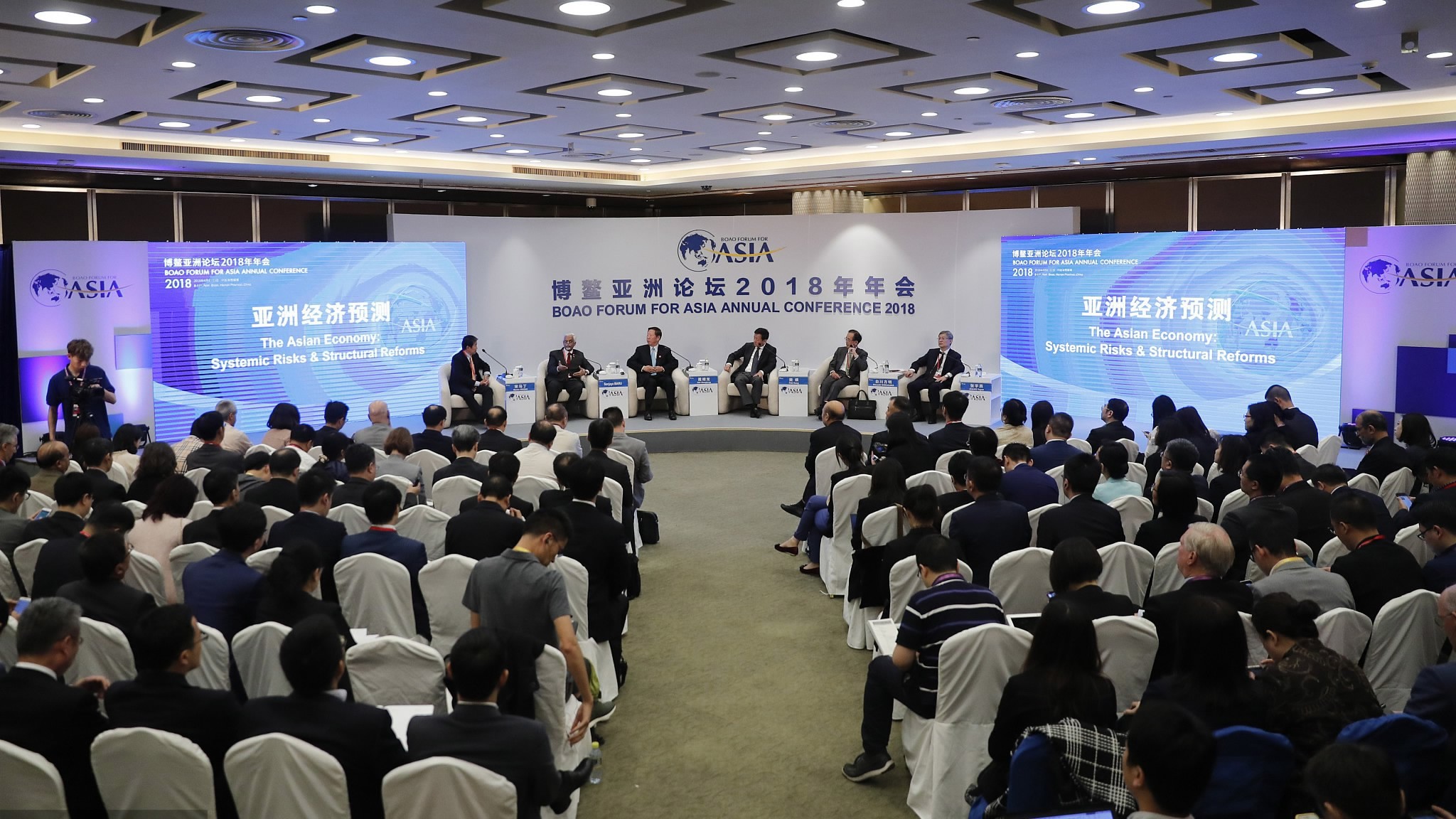
Opinions
16:54, 10-Apr-2018
Experts: Asia to lead world in economic growth in next 20 years
By CGTN

Asia is expected to continue leading the world in economic growth for the next two decades, experts said at a panel at the annual Boao Forum for Asia (BFA) conference currently unfolding in Qionghai, south China's Hainan Province.
While the West is still struggling to achieve steady economic growth in the post-crisis era, Asia has increasingly become the engine of global economic development. In the past year, Asia has delivered around 60 percent of world economic growth. And economists attending the BFA this year predicted that Asia will continue contributing to the majority of world growth.
Given its strong momentum, the Asian economy will maintain a high-speed of development in the next 20 to 30 years, said Dai Xianglong, former governor of the People's Bank of China. "China's development helps this momentum a lot. India is also enjoying fast growth. Moreover, China, Japan and South Korea will ramp up cooperation."
The Belt and Road Initiative can bring about new opportunities and inject fresh vigor into regional development, Dai added.
But over past few weeks, the whole world has been rattled by the trade row between the two largest economies and there are worries about its potential ripple effects on the Asian economy.
Fan Gang, director of the National Economic Research Institute, believes that any trade friction between Beijing and Washington will affect the whole supply chain and consequently the Asian economy at large.
"Asia is an industrial chain which has [an] upstream and downstream,” said Fan. Panels from South Korea and accessories of Malaysia are all assembled or processed in China, he added.
Masaaki Shirakawa, former governor of the Bank of Japan, asserts that it’s more significant to discuss economic fundamentals than political issues. “We shall underscore the potential growth rate and stay cautious if the growth rate was lowered down, or there will be economic bubbles,” he noted.

SITEMAP
Copyright © 2018 CGTN. Beijing ICP prepared NO.16065310-3
Copyright © 2018 CGTN. Beijing ICP prepared NO.16065310-3